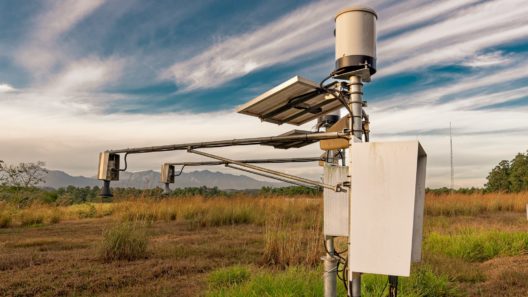Climate tech for all?
The equality implications of AI-for-climate solutions.

Project background
The world needs to reduce greenhouse gas emissions by 45% by 2030 to reach the goals of the 2015 Paris Agreement. AI and data-driven products are an important part of the climate tech ecosystem. Climate tech is broadly defined as technologies to address the climate crisis through climate mitigation, i.e. avoiding further temperature increases through reducing and eliminating emissions, or climate adaptation, i.e. helping society adapt to living in a higher temperature world. In recent years, there has been soaring private and public investment in these areas.
Solutions include monitoring weather systems to allow for better warnings about possible storms and flooding; precision agriculture technologies that allow farmers to reduce agricultural inputs; and efficiency-seeking technologies that reduce energy use. It is essential to understand the size and nature of the climate impacts of these proposed solutions.
However, in order to understand the climate impacts of new climate tech products we must understand not only their potential for reducing emissions (as examined by the likes of PWC and TechNation), but also their impact on climate justice. Who will benefit from a new piece of climate tech, and how? Will anyone’s experience of climate change be worsened as a result of the new technology? Will the costs and benefits of a new climate technology fall unevenly in a way that might exacerbate the climate justice problem?
Project aims
This project will examine if and how climate justice impacts are considered in the development of new climate tech products.
Given that climate change is an area already facing problems of inequality and injustice (the climate justice problem), and that AI-driven technologies have led to greater inequalities in areas such as healthcare, it is important to be careful and considerate about how AI technologies are deployed in order to avoid the risk of exacerbating climate justice problems.
This project has two goals:
- Understanding if and how climate-tech companies and funders include climate justice considerations in product development.
- Develop and promote a framework and procedure that climate-tech companies and funders can use to evaluate climate justice concerns in the development of new climate products.
Methodology
The project will begin with interviews with climate tech companies and funders to understand:
- How do they think about and measure the climate impacts of the AI-for-climate products they develop and fund? What motivates them to focus on certain aspects or measures of climate impact?
- How do they think about the impact of AI-for-climate products on their users? Do they consider the potential inequalities in who will have access to their products? Are their evaluations of impacts of their products informed by an understanding of the climate justice problem?
- If funders and founders do examine issues of climate justice in the development of their products, what approaches have they found useful? What would be accelerants or blockers to integrating climate justice impacts more thoroughly into their process?
The project will then create and test a framework for examining climate justice impacts that funders and founders will be able to use to increase the positive climate results they are trying to achieve.
Image credit: georgeclerk
Project publications

Net zero or net hero?
The role of AI in the climate crisis

Where capital falls short
Exploring the gap between venture capital and climate justice

How will data-driven climate change technologies affect global equality?
The role of data-driven adaptation technologies in the climate crisis